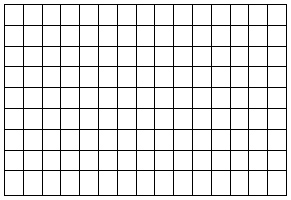Eye Services
Dr. Benson's practice emphasis is on treatment of glaucoma, diabetic eye dises, macular degeneration, dry eye, and other eye problems in addition to providing quality eye care to all ages.

Meet Dr. Benson
Dr. Benson is both types of eye doctors: Optometrist AND Ophthalmologist. Practicing with the motto, "Caring for you, not just your eyes," he has been attending to his patients for more than 25 years.

Frequently Asked
What is an ophthalmologist?
Why should I see an ophthalmologist?
How often should I see an ophthalmologist?
Get these answers and more.

Macular Degeneration
One of the leading causes of loss of vision as we age.
What is the macula and what does degeneration do?
The retina is the back part of the eye that processes light. The macula is a small but vitally important area of the retina. It is the only spot on the retina that is capable of detailed vision. As you are reading this page, you are moving your eye so that light is focused on the macula of each eye. Macular degeneration, or Age Related Macular Degeneration (ARMD) is a damage or breakdown of the macula The central part of the vision becomes blocked or blurred. The eye can still sees object to the side, since the peripheral vision is not affected, but it will NOT see detail.
For this reason, macular degeneration alone does not result in total blindness and most people can take care of themselves quite well. It can make reading or close work difficult to impossible without the use of special low vision optical aids. Sometimes only one eye loses vision while the other eye continues to see well for many years.
CAUSES, TYPES AND SYMPTOMS OF MACULAR DEGENERATION
Age is the most common factor associated with this degeneration. Genetics play a role as does smoking and UV light exposure. The most common form of macular degeneration is called dry macular degeneration. This form accounts for 70% of all cases is usually slowly progressive. It is a breakdown of the tissues in the macula.
About 10% of macular degeneration falls into a category called wet or exudative macular degeneration. The normal blood/retina barrier breaks down as new and unhealthy blood vessels grow into the macula. They rupture easily and may leak. Sometimes these blood vessels break and cause scar tissue to form. Other types of macular degeneration are inherited and may occur in juveniles.
Macular degeneration can cause different symptoms in different people. The classic sign of macular disease is the loss of central vision or straight lines looking wavy.
OPTICAL AIDS AND LIGHTING
Low vision optical aids may be of help. Many different types of magnifying devices are available. Please let our office know if you would like a referral to a low vision specialist or center. Bright illumination properly directed for reading and close work is often beneficial. Books, newspapers, and other items available in large print offer further help.
MEDICAL AND SURGICAL TREATMENT AND PREVENTION
As of 2001 we now have evidence that antioxidants and zinc (such as is found in ICAPS) may slow the progression in some forms of the disease. Cessation of smoking, taking the above vitamins, eating a diet rich in fruits and vegetables, and reducing the types of fats found in snack foods should be considered. Please do note that even vitamins can have side effects. Beta-carotenes may increase the risk of lung cancer in smokers. High levels of zinc have been associated with genitourinary tract problems. Other therapies are being tested.
In some cases of wet degeneration and if caught early, an ophthalmic laser surgery can be used to seal off leaking membranes and destroy new blood vessels. Ophthalmic exams and home monitoring with an Amsler Grid are very important for catching ARMD in any stage.
 |
This is an example of an Amsler Grid. Using your bifocals, look at the center of the squares, one eye at a time, every day. If the lines become wavy or missing, call us. |
If you are over age 50, or if your family has a history of retinal problems, you should have your eyes checked periodically for signs of eye problems like macular degeneration. Early detection and treatment, if indicated, may help prevent additional visual loss.


